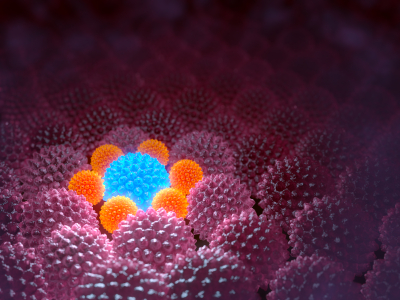Ascites Production is the most effective way of generating highly specific monoclonal antibodies in large quantities. Since Abcore has just finished construction on our brand new, state of the art ascites production facilities, we thought it would be a good time to explain more about what ascites production is and how it can used in antibody research.

Ascites production is based on the availability of hybridoma cell lines. Producing monoclonal antibodies by ascites production requires immunizing an animal (usually a mouse), obtaining immune cells from its spleen, and fusing the cells with a cancer cell. Normally the cancer cell used is a myeloma which makes the fused cell line immortal, which means that they will grow and divide indefinitely. A tumor of the fused cells is called a hybridoma, and these cells secrete monoclonal antibodies. The process of making monoclonal antibodies via hybridoma cells was awarded the Nobel Prize in 1984. What do you do once you have your hybridoma cell line? That is where Abcore can help. Once the hybridoma cell lines are made, and a cell line has been isolated which produces the antibody of interest, then these can be used in ascites production. Once the cell line is cultured to obtain the correct number of cells for injection the hybridoma cell line is injected into pristaine primed mice and in most cases in 7-14 days you will observe the accumulation of ascites fluid. This fluid builds up in the mouse and is removed by “tapping” multiple times ending with a final harvest of fluid at the end of the project. This ascites fluid is pooled, and generally each mouse is capable of producing up to 25 mg of monoclonal antibody. This of course is cell line dependent and can vary, but a good estimate is 5-10 mg/ml of your antibody per ml of ascites fluid and each mouse usually will produce ~3-5 ml of fluid. Ascites fluid is similar to serum; meaning you need to purify the antibody to achieve the best results once it has been isolated from the mice. In some cases you can use the straight fluid without purification. We can accept cell lines ready for injection or we also offer cell culture if you would like to send frozen cells. Abcore has just finished expanding our laboratory in Southern California by adding a state of the art, brand new ascites production facility and has technicians with years of experience to handle your production requests. The facility is monitored 24 hours a day for constant temperature and humidity. Everything from the ceiling tiles to the flooring was selected for achieving the highest possible standards. We can handle individual projects using just a few mice, or we have a capacity of over 4,000 mice for larger industrial projects. Contact us today for more information on development of your hybridoma cell lines using ascites production.


